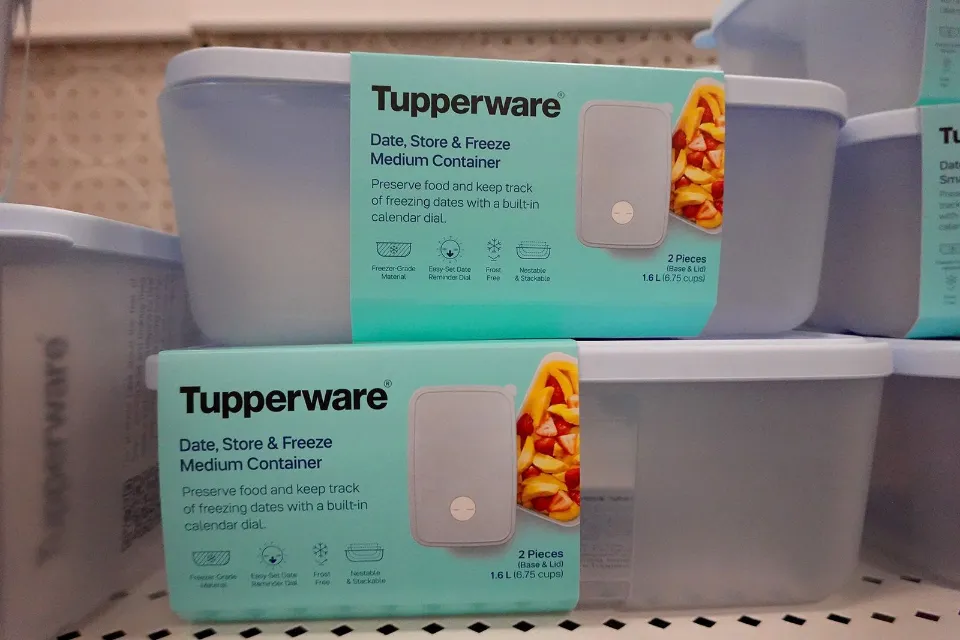How To Dispose Of Concrete Chunks? 8 Ways
Concrete plays a significant role in both our daily lives and our waste. Anyone who has worked on a construction project is aware of how much debris tends to accumulate over time. But how should concrete fragments be disposed of correctly? Due to the fact that you cannot just dump concrete anywhere, disposal can be difficult. Please read this article carefully if you want to learn how to get rid of concrete chunks.
Types Of Concrete Waste That Can Be Reused
It’s crucial to know which kinds of concrete waste can be recycled before you call around to schedule an offload or rent a dumpster. Here is a list of the most popular types that are usually recycled and used.
- Concrete Rubble: The majority of the time, these sizable, atypically shaped pieces of concrete are used as building stones for walls and slabs for patios and walkways.
- Concrete Blocks: Creating retaining walls or structural walls frequently makes use of these.
- Concrete Mix: This is frequently employed for laying the foundation for a house, pouring driveways, and placing fence posts.
- Concrete Chunks: For use on roads and parking lots, many landscaping businesses use concrete fragments left over from projects.
Why Throw Away Chunks Of Concrete?
Concrete chunk disposal is a crucial component of construction and recycling. Concrete can be disposed of in a variety of ways, each with advantages and disadvantages of its own. For instance, asphalt can be reused in fresh construction projects after being recycled. It must be properly disposed of as a hazardous material though.
The use of specialized tools or hiring a concrete removal company with experience are two additional disposal options.
Concrete is typically recycled before being disposed of. For new construction projects, concrete can be ground up and used as a foundation. This lessens the requirement for mining fresh materials and aids in lowering greenhouse gas emissions. Because processing recycled materials require less energy than processing virgin materials, recycling concrete also conserves energy and resources.
Utilizing specialized machinery is another method of disposing of the concrete. Concrete crushers can reduce the size of the material into more manageable pieces for disposal. Some businesses also provide mobile concrete recycling services that visit your job site and recycle the materials there.
If you have a lot of concrete to get rid of and don’t have easy access to a recycling facility, this might be a practical option.
Concrete disposal may be possible on your own if you only have a small amount. One choice is to transport the waste to a nearby landfill or transfer station. To break the material into smaller pieces that can be more conveniently thrown away in your regular trash bin, you can also use a sledgehammer or other heavy object.
However, it is not advised to dispose of concrete in this manner as it may produce dangerous dust that could be harmful if inhaled.
If you have a lot of concrete, you might need to hire a specialist business to remove it for you. Companies that specialize in the removal of large amounts of concrete frequently have the tools and knowledge needed to do so in a secure manner. In order to relieve you of the burden of worrying about it, they will typically take care of properly disposing of the material.
Benefits Of Disposing Of Concrete Chunks
Concrete is one of the strongest building materials currently on the market, but it can also be one of the trickiest to properly dispose of. There are many ways to recycle or reuse concrete, which is a crucial environmental consideration for any construction project.
Concrete disposal equipment comes in a few different varieties, and each has advantages and disadvantages of its own. One of the most well-liked types is the creation of new asphalt for paving projects using recycled asphalt.
Recycling asphalt is a fairly straightforward process that doesn’t need a lot of specialized equipment.
Recycling from construction and demolition (C&D) is a different kind of concrete disposal tool. Concrete is crushed during C&D recycling so that the smaller pieces can be used as fill or aggregate in new construction projects.
Although C&D recycling can take longer than other processes, it’s frequently the most environmentally friendly choice.
Once you’ve chosen a disposal strategy, there are a few different ways to carry it out. You have two options: either hire a qualified contractor who has the necessary tools for the job, or do it yourself with a skid steer or excavator that you can rent. Follow all safety precautions if you’re performing the work yourself, and check with your local government to see if there are any rules you need to abide by.
The Dangers Of Disposing Of Concrete Chunks
Concrete and asphalt are both common building materials that are frequently used interchangeably. The two, however, have important distinctions, particularly in terms of disposal. While asphalt can be properly disposed of without harming the environment, concrete cannot be recycled.

Sand, gravel, cement, and water are combined to create the tough material known as concrete. It is frequently employed in building projects, such as those involving sidewalks, driveways, and structures.
Bitumen and aggregate are combined to create asphalt, another common building material. For paving parking lots and roads, it is most frequently used.
Concrete should always be recycled when it is being disposed of. Concrete can be recycled and applied to new construction projects. By doing this, waste is reduced and disposal expenses are cut. It’s crucial to use the right tools when recycling concrete to prevent contamination.
When concrete cannot be recycled, there are a number of disposal options. One choice is to dispose of it in a landfill. Solid waste is buried and compacted underground in specially designed landfills.
Concrete can also be burned as a different option. Concrete is converted during incineration into ash and gas that can be used to produce electricity or heat commercial boilers.
What Should Be Done With Broken Concrete?
Rent A Bin
A bin for recycling concrete is necessary for all industrial and sizable residential renovation projects. Concrete disposal is more affordable and can handle a lot of material in a recycling bin. The procedure is straightforward: the bin is delivered, the customer loads the concrete, and it is then picked up on the scheduled date.
You don’t have to be at home for delivery or pick-up as the customer, which is a huge perk for a time-constrained project manager. Every budget can afford to rent a bin for the disposal of concrete because it is a pay-one-price service.
Social Media And Classified Ads
Instead of disposing of concrete, consider using social media. Contractors and do-it-yourselfers frequently search for materials to recycle so they can cut costs on their projects.
The best you can hope for when you post an ad is an agreement to haul the materials away for free, though you might be able to sell the concrete. Finding someone to pick up the concrete is advantageous because you can recycle the material and give it away for free.
Leave The Concrete At The Curb
Some people regularly patrol our streets in search of free items they can recycle or reuse. This solution might work best for you if you live in a busy area. Numerous people perusing your offerings means high traffic.
It doesn’t take long for someone to show up and pick up whatever you have out on the curb, and it’s a free way to dispose of concrete. Also, keep in mind that there is very little labor required; simply place the material in the trash and wait for it to vanish.
Use A Junk Removal Company
Using an agent to find a junk removal company can occasionally be hit or miss. Find out who can handle concrete by calling various businesses first, and then negotiate a price. The junk removal company will then arrange a pick-up window and estimate the cost before starting.

Prior to giving junk removal companies your work, you should be aware of what they excel at. You are given a specific date for removal after the business handles the laborious task of loading the concrete into a bin for you.
Donate To Your Community
Due to the high cost of concrete, local businesses and contractors are constantly looking for leftover concrete to use in their ongoing projects. To reach these groups, you can advertise your availability to share leftover concrete with your neighbors on social media or Craigslist.
Although you might be able to make a small profit from the concrete you sell, the best result is usually to give it away in exchange for someone else hauling it away from your site.
Another option is to inquire about any needs for leftover concrete with nonprofits and neighborhood associations. They may offer to come to pick it up for you because they are frequently appreciative of the free resource.
Contact A Landscaping Company
For their projects, landscaping businesses frequently search for leftover concrete. For creating sidewalks, flower boxes, and retaining walls, these landscaping companies frequently use leftover concrete as a more environmentally friendly option. Crushing the leftover concrete to use as a foundation for new roads is a common practice among landscaping construction material companies.
Haulers Can Help
These service providers are widely accessible on social media platforms, and they could be the ideal solution to your disposal of concrete issues.
However, using a hauler will cost money, and the amount of work they must perform will be factored into the cost. Since costs will rise if the materials need to be handled, be upfront with the hauler off the top.
Diy (Dump It Yourself)
Concrete can be dumped at a transfer station or a nearby landfill using a pick-up truck. There may be designated days when residents can drop off their trash for free at their local landfill. However, if you plan to dispose of the concrete yourself, be sure to first ask the landfill or transfer station if they will take it.
Finding the appropriate location for concrete disposal ensures that the product is removed from your home or workplace. Additionally, DIY dumping enables you to work at your own pace.






